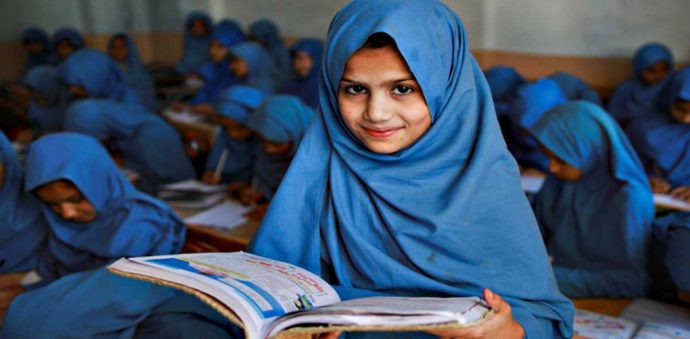
Hundreds of Microschools to Be Established in Sindh for 300,000 Out-of-School Children
The Sindh Education Foundation (SEF) was instructed by Chief Minister Syed Murad Ali Shah on Thursday to set up 300 virtual “micro-schools” with the goal of enrolling 300,000 out-of-school children and employing more than 600 female learning facilitators. He also gave his approval for a Rs. 800 million funding for this project.
Education Minister Syed Sardar Shah, Chief Secretary Asif Hyder Shah, Planning and Development Chairman Najam Shah, School Education Secretary Zahid Abbasi, Finance Secretary Fayaz Jatoi, SEF Managing Director Kazi Kabir, and board members Qaisar Bengali, Dr. Qazi Masood, and Dr. Mohammad Memon were present at the SEF board meeting when these directives were given.
Microschooling is a modern take on the one-room schoolhouse model that makes use of tablets and cellphones to provide children from low-income families with efficient learning programs.
The extension of the Accelerated Digital Learning Programme (ADLP) in partnership with the Teach the World Foundation was approved by the Chief Minister. Phase II of the program is expected to take three years to complete.
It was mentioned that Rs710 million was allotted for the first ADLP pilot, which was authorised by the Cabinet and Board of Governors in 2023 and would have supported about 12,500 students.
Mr. Shah gave SEF MD Kazi Kabir instructions to open 300,000 virtual microschools by 2025 in order to register 300,000 youngsters who are not enrolled in school. Additionally, he gave the SEF instructions to hire more than 600 women as learning facilitators for the project.
The CM approved Rs800 million for the SEF after learning from the SEF MD that the cost per student in the upcoming ADLP phase would be Rs 2,200.
A briefing on the present enrolment of one million students in 2,734 schools, 35 public schools, 223 learning centres, and 125 micro-schools was also given to the conference. In addition, 804 of the 4,452 students who are getting scholarships have already graduated.
The Chief Minister was advised that the SEF operates in 23 districts and six regions, and that by 2025–2026, it will establish 1,000 digital classrooms and skill development initiatives to give graduates marketable capabilities.
Syed Sardar Shah, the minister of education, stated that the SEF is reviving six public schools that were not functioning before and were without adequate housing.
He emphasised that SEF now has an inadequate yearly budget of Rs15,955 million, spending Rs16,000 per student every month. The finance secretary was given instructions by the chief minister to examine the budget and recommend ways to close any gaps.
The CM was also notified that the SEF accounts for the fiscal years 2021–2022 to 2023–2024 would be audited by an impartial third party.

Content writer, educationist, teacher, researcher, social media manager, and a SEO manager from lahore. She has been working as a freelance academic and non-academic writer for more than 20 years now. She has a passion to learn new things and has a knack for writing and she combines both things to produce write ups she pours her heart out in.

